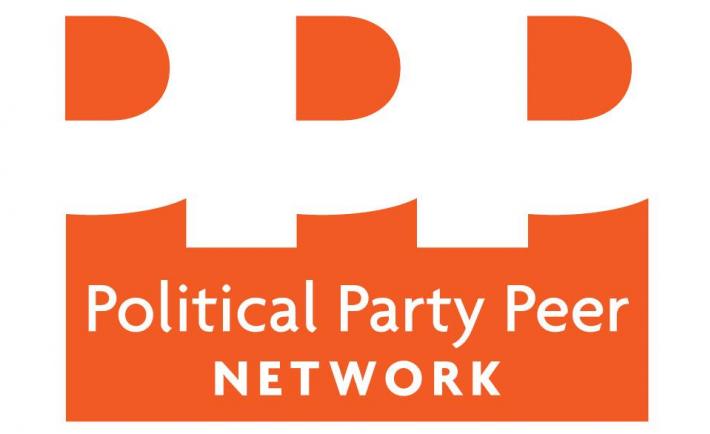“Political parties only care about themselves; they’re what’s wrong with politics.”
It’s a sentiment that every political junkie has heard numerous times, and one that I’ve heard more times than I can count. However, developing political party capacity has always been -- and shall continue to be -- a key component of NDI’s democracy support work.
Although assisting political parties is neither the sexiest nor the most popular development work, parties remain the fundamental institutions that represent citizens in democracies. Despite waning party membership and public opinion surveys reporting levels of public confidence in the doldrums, without effective assistance and support, political parties will never improve. At their best, functioning political parties can represent citizen interests by proposing public policies, competing for power in elections, and influencing government either by implementing policies or providing alternatives while in opposition. Helping parties aspire to their theoretical potential can counteract corruption and improve governance.
Since 2007, the Political Party Peer (PPPeer) Network has helped address the “crisis of representation” by working to improve collaboration and dialogue among political party assistance organizations. The thought? That cultivating a global community of practice among party foundations, party assistance organizations, donors and academics could spark innovation in political party assistance by sharing ideas and tackling common challenges. If party assistance was more effective, improved political party capacity would follow.
NDI helps set the agenda for the PPPeer Network as a member of its core group alongside the Danish Institute for Parties and Democracy, the European Network of Political Foundations, the International Institute for Democracy and Electoral Assistance (IDEA), the International Republican Institute, the Netherlands Institute for Multiparty Democracy, the Oslo Center for Peace and Human Rights and the Swedish International Liberal Center (SILC). Since assistance organizations have different approaches, strengthening collaboration between them can help network members glean new insights and a better appreciation for donor expectations or programmatic impacts.
IDEA Secretary-General Vidar Helgesen noted the importance of global political party support at a PPPeer Network meeting in June 2013, saying: "Politics is becoming increasingly important to allow citizens to make decisions of economic development. Political party assistance is therefore more relevant than ever.” NDI was represented at the meeting by Ivan Doherty, director of political party programming, Senior Advisor Sef Ashiagbor; and Program Manager Nic Benson.
Since the meeting, the PPPeer Network has established a fledgling digital presence on Twitter and Facebook to start a conversation and share publications.
Although scattered across the globe and separated by thousands of miles, the PPPeer Network connects political party assistance organizations to ensure best practices can be shared, taught and learned around the world. In the words of SILC Secretary-General Martin Angeby, “We are peers; we share the view that political parties are important.”
"We are peers, we share the view that political parties are important" @MartinAngeby first speaker on #PPPeer
— Linnéa Engström (@LinneaEngstrom) June 10, 2013
Keep track of NDI’s work with political parties on Twitter by following @NDIparties and #PartyDev for our conversation on political party assistance.

